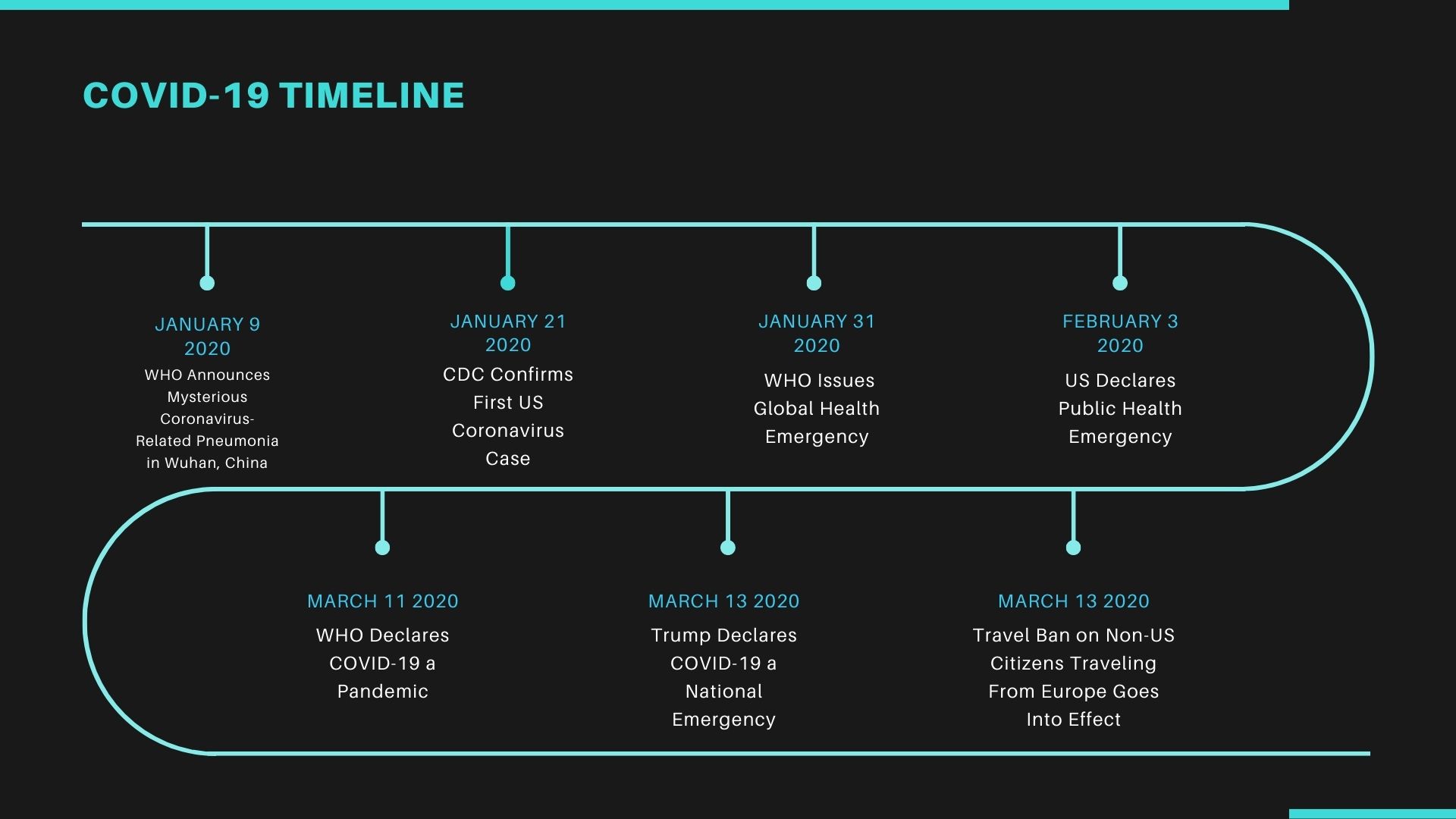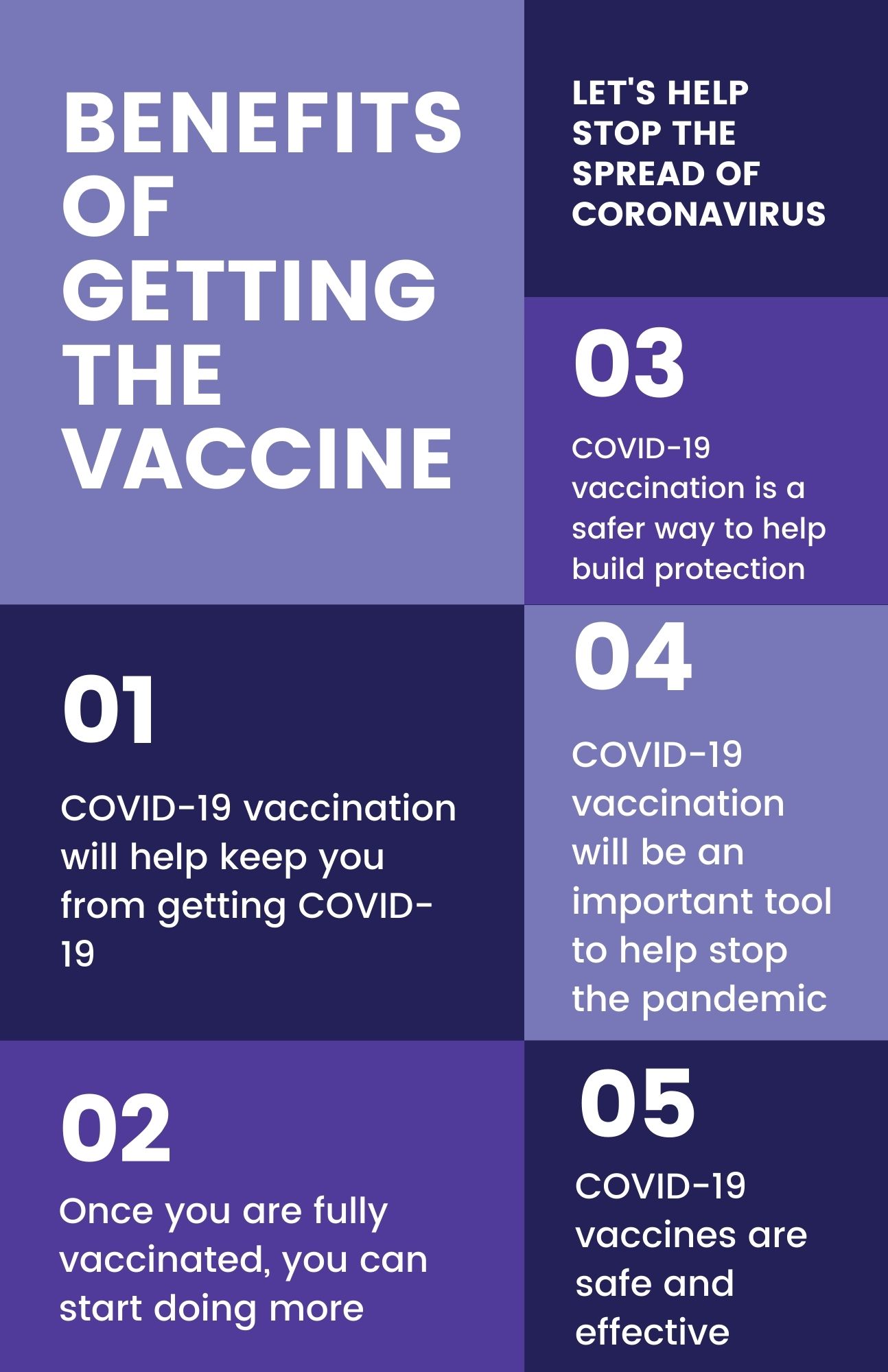It’s been over a year since the World Health Organization (WHO) declared COVID-19 a pandemic, and the question on most people’s minds is “when will this end?”
Since early 2020, the United States has taken numerous actions to help combat COVID-19 and the rising pandemic. On March 13, 2020, President Donald Trump declared COVID-19 a national emergency. This unlocked billions in federal funding to help fight against the spread of COVID-19. Along with declaring the national emergency, the Trump administration also implemented a new travel ban on non-US citizens who visited certain European countries.
Soon after the national emergency was announced, the Trump administration asked Congress to send Americans relief checks. On March 26 the US Senate passed the Coronavirus Aid, Relief, and Economic Security (CARES) Act, which provided $2 trillion in aid to businesses, hospitals, and governments.
The CARES Act was signed into law on March 27, 2020, and the first stimulus check was soon to follow. Americans got $1200 each and an extra $500 for any dependent they claimed. However, if you were considered a dependent, you did not receive the stimulus check.
Luke Burke, a 22-year-old student at Northern Illinois University did not receive a relief check even though he pays for his regular living expenses. “I was pretty mad that I didn’t get the check because I work, I pay taxes, I pay for almost all of my own stuff. It’s almost like us college kids fell through the cracks just because we’re considered “dependents” even if we’re already independent.”
Fast forward a few months, two more stimulus checks were released, still, most college students claimed as dependents did not receive a penny. In March of 2021, Congress approved a third round of stimulus checks to be sent out to the American people. This time, checks we’re $1400 per adult with an additional $1400 per child or adult dependent.
The image above includes ways you can help prevent the spread of COVID-19. For more information check out https://www.cdc.gov/coronavirus/2019-ncov/your-health/about-covid-19.html
Since the extra $1400 would be sent to whoever claimed the dependent, it would be up to them to decide if the dependent would get the money directly or not.
Carthage College sophomore Jessica Cantrell was hoping she would finally receive her stimulus check last month but that was not the case. “I understand that the money is supposed to go to my mom so she can use it for whatever expenses she comes across for me but I don’t get why I couldn’t get the check directly. I work and pay for my own stuff, the stimulus check would help me pay for my school needs, but I didn’t see any of it.”
Currently, there is not a lot of talk from the Biden administration on a fourth stimulus check, instead, Biden has focused on his Build Back Better plan.
At the beginning of 2021, the United States started phasing vaccines to the public. Although each state decides who will be eligible for the vaccine and when they can get it, many states have opened up eligibility.
Senior Ashley Hallissey from Metea Valley High School explained that “getting the vaccine is so important. I’m glad the eligibility in my area has expanded, it’s such a simple thing to do to help us get back to normal again.”
Although not every American wants to get vaccinated, it’s important to note that vaccines are an effective tool in the prevention of infections to the general population. Luckily, research from the Center for Infectious Disease Research and Policy suggests that about 70 percent of the population would need to be vaccinated to achieve herd immunity from COVID-19.
As of right now, roughly 39 percent of the US population has received at least one dose of the vaccine, and about 25 percent is fully vaccinated. Those numbers are expected to rise over the next few months.
For more information on COVID-19 check here and for more information on how to get vaccinated check here.

